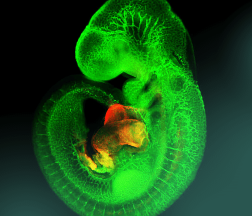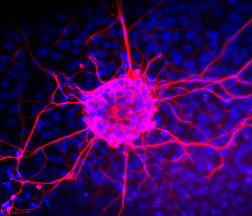Supervisor
Zuzana Sumbalová Koledová
Project description
Lactation is a critical physiological process requiring precise coordination of cellular functions, including DNA replication, transcription, and the DNA damage response, to support milk production. This PhD project aims to unravel the molecular mechanisms underlying these processes in lactating mammary epithelial cells. Using a cutting-edge lactation organoid model developed in our laboratory, combined with in vivo mouse models, the student will explore how DNA replication and transcription and DNA damage response regulate differentiation of luminal cells to milk-secreting alveolar cells. Advanced imaging techniques, transcriptomics, and molecular biology tools will be employed to investigate these pathways in detail. The findings will provide new insights into the fundamental biology of lactation and may identify novel targets for addressing lactation-related disorders, contributing to improved maternal and neonatal health.
Candidate profile
Suggested reading
Supervisor
Zuzana Sumbalová Koledová
Project description
This project focuses on the development of innovative human mammary organoids as an advanced in vitro model to investigate breast morphogenesis, a fundamental process in mammary gland development and a critical factor in breast cancer progression. The aims are to optimize protocols for generating human mammary organoids that faithfully recapitulate key aspects of mammary gland morphogenesis, including branching morphogenesis, epithelial differentiation, and hormonal responsiveness. Using advanced imaging methodologies such as confocal microscopy and live-cell imaging, the structural organization and dynamic behavior of these organoids will be characterized in unprecedented detail. Molecular profiling techniques, including transcriptomics and proteomics, will provide insights into the regulatory networks and signaling pathways governing mammary organoid development.
By integrating these approaches, the study seeks to address critical gaps in our understanding of the molecular mechanisms underlying breast development and disease. The resulting human mammary organoids will serve as a robust platform for studying breast cancer initiation and progression, offering a more physiologically relevant alternative to traditional models. Ultimately, this work has the potential to drive the development of more effective therapeutic strategies for breast cancer, a disease that remains a leading cause of morbidity and mortality worldwide.
Candidate profile
Suggested reading




